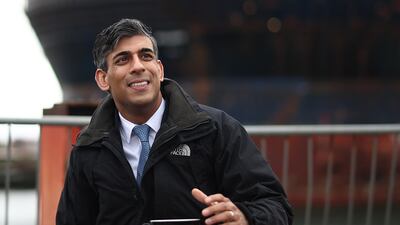UK Prime Minister Rishi Sunak is facing an exodus of MPs, with at least 72 of his Conservative colleagues saying they will not stand at the next general election.
Transport Minister Huw Merriman and Work and Pensions Minister Jo Churchill were the latest to announce their resignations on Thursday.
Mr Sunak’s decision to call a summer election surprised many in Westminster, who had been expecting an autumn poll.
The news has reportedly caused disquiet among some Tory MPs fearful of losing their jobs, and newspaper reports have suggested cabinet ministers have voiced concerns about the decision.
In 1997, a record 75 Tory MPs stood down at an election, but concerns are growing in the party that this year, that figure could be surpassed.
Other senior Tories have already said they will not seek re-election, including Ben Wallace, Sajid Javid, Dominic Raab and Nadhim Zahawi.
Another stepping down is former health secretary Matt Hancock, who said he was proud to leave Parliament as a Conservative MP.
Meanwhile, Mr Sunak's flagship lifetime ban on smoking for everyone under 14 in the UK looked set for the scrap heap as parliamentary managers wrapped up business at the launch of the general election campaign that the Prime Minister triggered for July 4.
The bill that would aim to keep young people from ever being able to use tobacco was put in doubt after it was not mentioned among legislation that could be rushed through by MPs ahead of Parliament being prorogued on Friday.
UK general election campaigning – in pictures
The early election call by Mr Sunak killed off Nigel Farage's plans to stand for the emerging challenger on the right, Reform UK.
The Brexit campaigner could have taken charge of a party registering in the double digits in the polls but instead pledged to continue his TV career.
In an election that the government could be dominated by migration, Mr Sunak was confronted by more high figures, with the difference between the number of people legally arriving in the UK and leaving put at 685,000, a marginal drop of 10 per cent on the record-breaking 764,000 in 2022.
It was also revealed that a record 68,564 people were granted refugee status in the year to March.
Opposition leader Keir Starmer made his first pit stop on a football pitch in Kent as he accused the Conservatives of never believing the Rwanda deportation plan would work after Mr Sunak conceded flights would not take off before the election.
The Prime Minister kicked off his campaign on Thursday with Mr Sunak urging voters to back him at the polls, saying that only by re-electing him would the Rwanda scheme work.
Mr Sunak arrived in the Scottish Highlands for a final stop on the first day of campaigning, with a trip to Northern Ireland scheduled for Friday.
He then spoke with port workers, discussing apprenticeships and the transition from old industries such as oil and gas to new ones such as renewable energy.
The Labour Party has a 17-percentage-point lead over the Conservative Party in the first opinion poll conducted since the election was announced.
The poll was conducted by More in Common, a member of the British Polling Council, which sets professional standards for polls conducted in the UK.
The poll of a little more than 2,000 people showed 44 per cent support for Labour and 27 per cent for the Conservatives, with the right-wing Reform UK party polling at 10 per cent and the centrist Liberal Democrats at 9 per cent.
The Green Party was at 5 per cent.



























































































